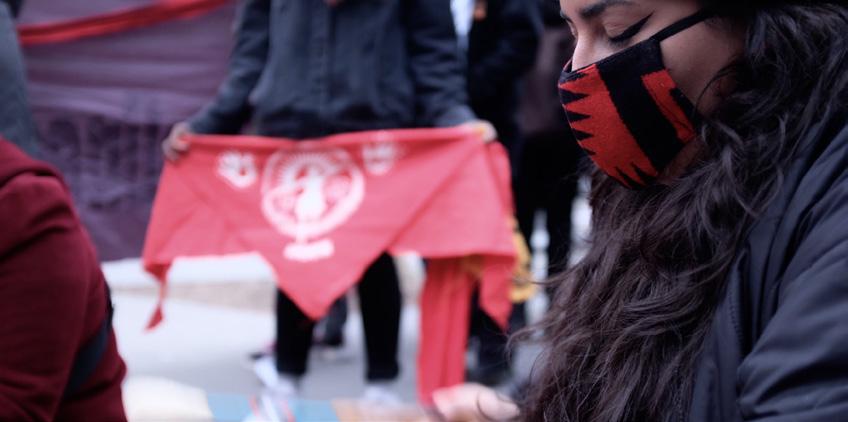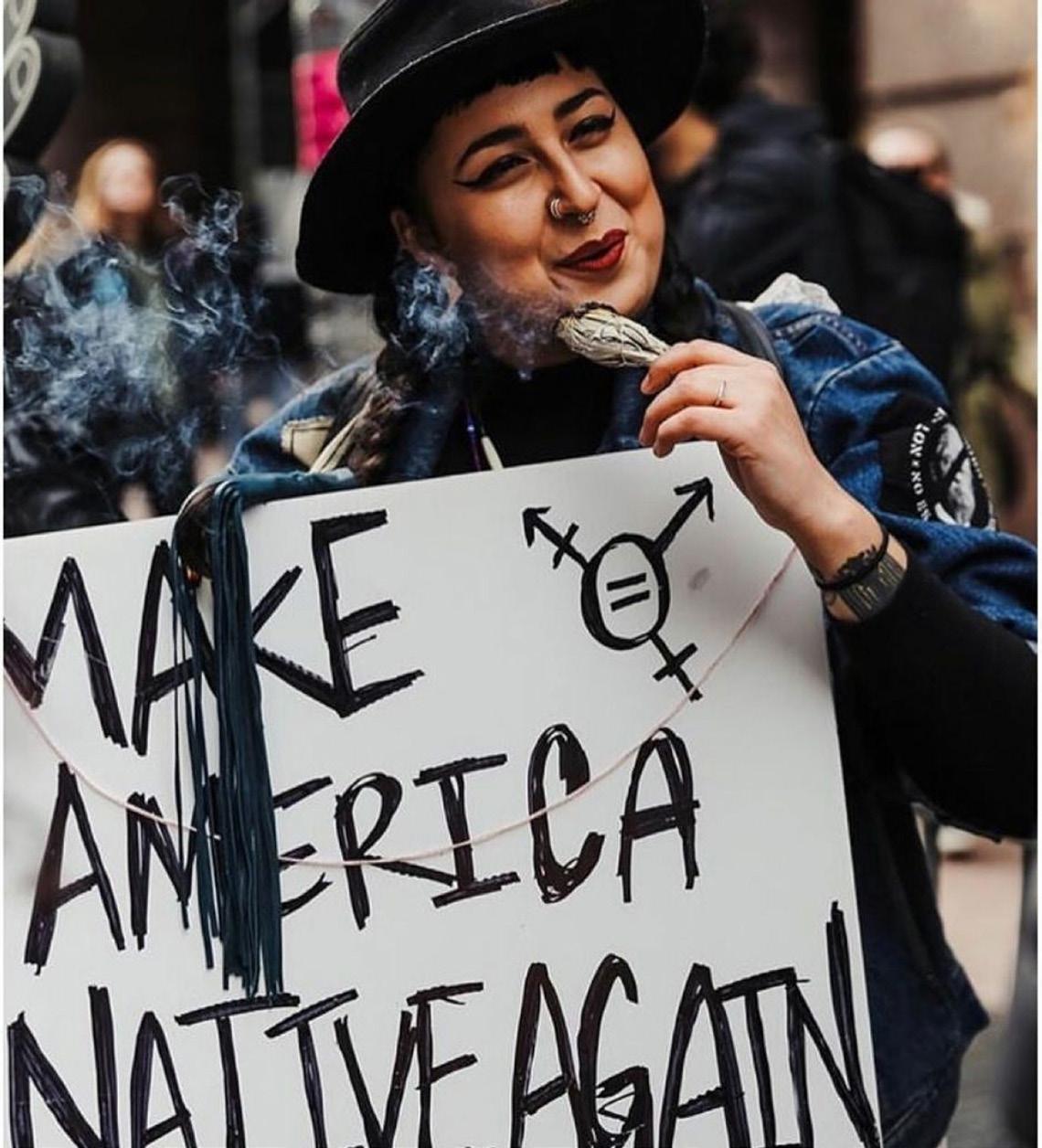
4 minute read
FROM THE FRONTLINES OF THE PANDEMIC TO THE FRONT LINES OF THE BLACK LIBERATION MOVEMENT: REGAN DE LOGGANS
Photograpner unknown.

Advertisement
From the Frontlines of the Pandemic to the Frontlines of the Black Liberation Movement: Regan de Loggans
Brooklyn-based indigenous queer activist and community organizer Regan de Loggans has been working non-stop since the beginning of 2020. We have seen them go from the frontlines of COVID-19 helping and organizing with aid and other resources to the frontlines of the Black liberation movement, where they work in solidarity to support Black liberation and police abolition. Regan took time out of their hectic schedule to fill us in on their work with the communities and why indigenous people need to work in solidarity with the Black community towards Black liberation.
Thank you for meeting with us. Where are you from?
Lenapehoking utaa li. I live in the so-called Brooklyn, New York, on Lenape land.
What are your tribes?
Mississippi Chahta sia hoke. I’m a Mississippi Choctaw. And a descendant of the K'iche' Maya of Guatemala.
What are your pronouns?
They, themme and theirs.
LGBTQ+ space?
Hattakholba, yukpa sia hoke. I am a queer, transgender, non-binary person.
You're one of the co-founders and a member of Indigenous Kinship Collective, could you explain to us what this collective is? Why was this created?
Yes! The collective started in 2018 after an Indigenous womxn's gathering in Lenapehoking. And we started in hopes of creating a community for indigenous femmes, trans folx, and womxn in an urban space where there is so much erasure in terms of urban indigenous folx. We wanted to create a community with one another, which we did! And as we grew, our mission changed, and we became more education, art, and direct action-oriented. And now, we are a multifaceted collective that not only generates educational content but is committed to providing a long term community in New York City through social justice activism. Our group is made up of designers, photographers, educators, filmmakers, poets, and we are all activists in our community. We will always continue to demand change and liberation for our kin. Read more about the

collective at indigenouskinshipcollective.com.
You went from being on the frontlines of COVID-19 helping and organizing with aid and resources for all of those affected by the pandemic to now being on the frontlines of the Black liberation movement where you work in solidarity with BLM by partaking in cop watch, jail support and protection among other ways. What has this year been like for you? How do you physically, mentally, emotionally, and spiritually deal with everything?
This year has been a f***ing roller coaster. I have always been a very "busy" person, but COVID-19 and the continued police violence highlighted injustices within different communities. COVID-19 exacerbated underlying issues of racism and capitalism, so it was essential for us to act. And the continued horrific murders of Black people by the police escalated abolition conversations. As a non-Black indigenous person and educator, it is my duty to stand in solidarity with Black liberation. So it was a no-brainer to get back out in the streets. Community organizing in this present time impresses on all of us the importance of mutual aid work, community solidarity, and abolition in our day-to-day conversations. And I will be honest; I am horrible at taking care of myself. Like many people socialized as womxn, we are often taught or expected to take care of others before ourselves. Which is essential work for the revolution, but can lead to burn-out and exhaustion. As a queer person of color, there are real risks to not doing that selfless work, so I rarely find time to take care of myself. I often pray and lean on the Indigenous Kinship Collective for support in much of the work. I am so thankful for consistent support; it keeps me motivated.
Regan often organizes and/ or participates in protests. Photos by Roxy Romero.
You created a zine full of information on what to do if someone was exposed to chemical attacks like pepper spray and tear gas. What moved you to create this informational zine?
I wrote "Let's Talk: Chemical Attack Safety" because I saw a lot of people on Instagram sharing chemical attack safety information from military personnel, and it angered me! I could not fathom that people were still supporting military knowledge as an authority, especially when we are calling for the abolition of the police, who are militarized. The legacy of military violence is born of police violence, so it blew my mind that radically-minded people were sharing information generated by perpetrators of continued colonial violence. Black and Indigenous people must reclaim information and identify ourselves as the authorities in knowledge. It was the same reason I wrote "Let's Talk: Mutual Aid" Zine, because of the co-option of Black and Indigenous knowledge in a time of crisis. Indigenous and Black communities were and are targeted and criminalized for practicing what folx now define as "mutual aid." Hence, it was important for people to know that the legacy of Mutual aid is based on the knowledge of Black, Indigenous, and other people of color. So I wrote a zine on it to re-educate and re-define the discourse before it could be co-opted.
Is there anything else that you'd like to add?
I want to take this space to remind everyone reading this that it is our duty as Indigenous people to support Black liberation and police abolition. Tools of colonialism are used to divide our communities, and we must push back on that. Black liberation is Indigenous liberation is Black resistance is Indigenous self-determination. Taklosa okchaya kvt holitopashke [Black Lives Matter]. Follow Regan on IG Follow Regan on IG @Phaggot.Planet










